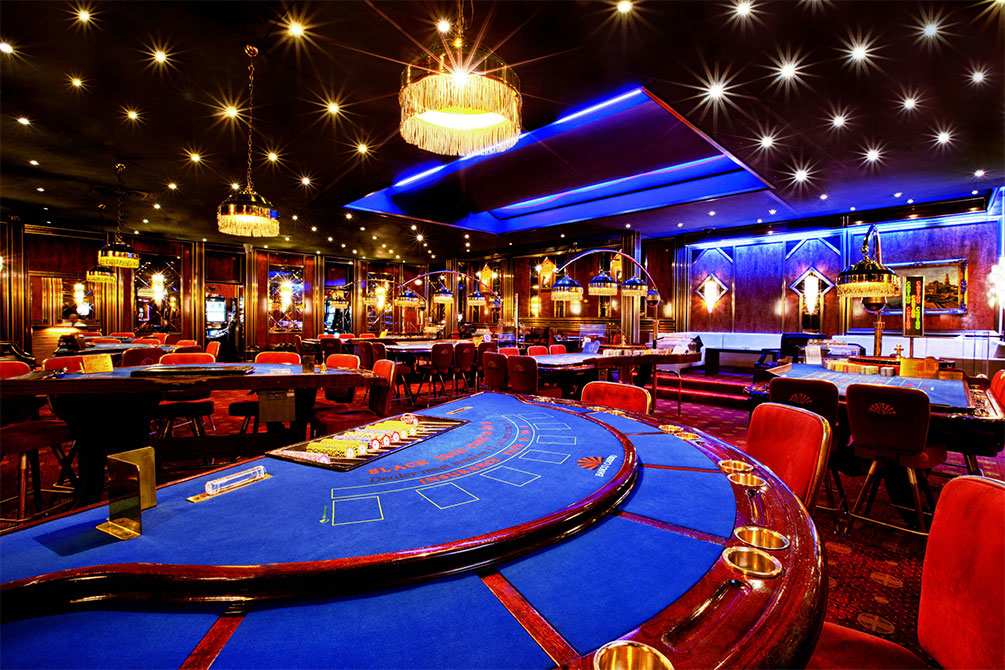
Casino games have long captured the fascination of people around the planet, becoming an integral part of both entertainment and tradition. From the glimmering lights of the Vegas Strip to the engaging experience of online gaming, these activities evoke enthusiasm, uncertainty, and sometimes even a sense of sentimentality. They are more than simply entertainments; they have woven themselves into the fabric of human experience, influencing various aspects from movies and music to clothing and writing.
The charm of casino games transcends the wagering aspect, tapping into wider themes of fortune, chance, and social interaction. As players assemble around a card table or rotate the wheel of fortune, they engage in an timeless ritual that resonates with our communal desire for excitement and instability. This obsession has led to the emergence of countless references in cinema, songs, and gaming, showcasing how deeply entrenched these activities are in pop culture. Whether it is the high-stakes tension of a legendary caper or the vibrant nightlife portrayed in recordings, casino games have established a substantial niche that reflects our relationship with risk and reward.
Social Importance of Gambling Games
Gambling games have played a key role in social contexts throughout history. Originating from ancient societies, games of chance were often connected to rituals or gatherings. For example, early iterations of gambling can be linked back to historic China and the Romans, where dice games and wagering on outcomes were popular pastimes. These activities not only functioned as entertainment but also as methods of social interaction, facilitating connections among individuals within communities.
As cultures evolved, so did the complexity and structure of casino games. The establishment of official casinos in the 17th century, particularly in Italy, marked a notable shift in how games were viewed and organized. With specific spaces for gaming, the casino became a community center where people from different backgrounds gathered. This evolution contributed to the legitimization of the industry, transforming it from a mere pastime into an established industry that influenced economy and regulations.
The effect of casino games on mainstream culture cannot be overlooked. As they were brought into the limelight in literature and film, games such as poker and 21 became icons of chance, chance, and tactics. Famous figures and narratives have emerged around these games, reflecting societal attitudes towards fortune, wealth, and immorality. This fascination with casino games has infiltrated various forms of media, solidifying their status in the collective consciousness and connecting them to wider cultural stories throughout the ages.
Depiction of Gambling Games in Entertainment
Casino activities have long been a popular subject in different types of entertainment, reflecting both the fascination and nuances of the world of gambling. Movies such as Ocean’s 11 and Casino Royale portray characters who navigate dangerous scenarios, showcasing not only the attractiveness of the gambling environment but also the strategies and decisions that come with playing popular games like poker and blackjack. These movies often dramatize the thrill of winning and the potential consequences of losing, encapsulating the risks involved in betting.
TV programs have also explored the world of gambling activities, often integrating them into the narrative as a backdrop for character arcs and conflict. Series like Las Vegas depict the experiences of gambling employees and customers, highlighting the lively, often tumultuous energy of the casino floor. Reality shows featuring high-stakes gambling competitions further emphasize the attraction of gambling activities, drawing viewers into the excitement and strategy involved in each round. Through these representations, media not only engages but also prompts conversations about luck, expertise, and the character of randomness.
Gaming have increasingly incorporated casino games into their development, allowing players to simulate the experience of gambling without monetary loss. Titles within the landscape of online gaming often include virtual slots, poker, and other popular casino games, creating an engaging environment that mirrors traditional gambling. These virtual portrayals make gambling activities accessible to a global audience, appealing to both players who indulge and those who enjoy the thrill of simulation. As a outcome, the portrayal of gambling activities in media continues to shape societal views and cultural significance, highlighting their role in entertainment and culture.
Impact of Gambling Activities on Communities
Casino games have a meaningful effect on society, affecting multiple facets of culture and social behavior. They often serve as a venue for community engagement, where people gather to enjoy a shared experience. Casino trips with friends or visits to casinos become group events that build connections and create memories. This communal aspect boosts the entertainment value of casino games, making them a favored choice for festivities and leisure activities.
Moreover, gambling activities have been depicted in numerous films, TV series, and written works, shaping perceptions and opinions towards gambling and betting. Icons like James Bond playing baccarat or the intense poker scenes in films have cemented these games in the shared imagination. This representation often glamorizes the lifestyle associated with gambling, attracting new players and impacting trends in both fashion and behavior. Vin777 These representations can ignite curiosity and lead to a deeper investigation of the nuances of gaming.
Nonetheless, there are also negative implications linked to the popularity of gambling activities. The allure of quick monetary gain can lead to problem gambling and economic troubles for some individuals. The community must contend with these consequences, advocating for responsible gambling and education of the risks involved. Balancing the fun aspect of casino games with the risks is crucial to ensure that they continue to be a beneficial aspect of our societal fabric.